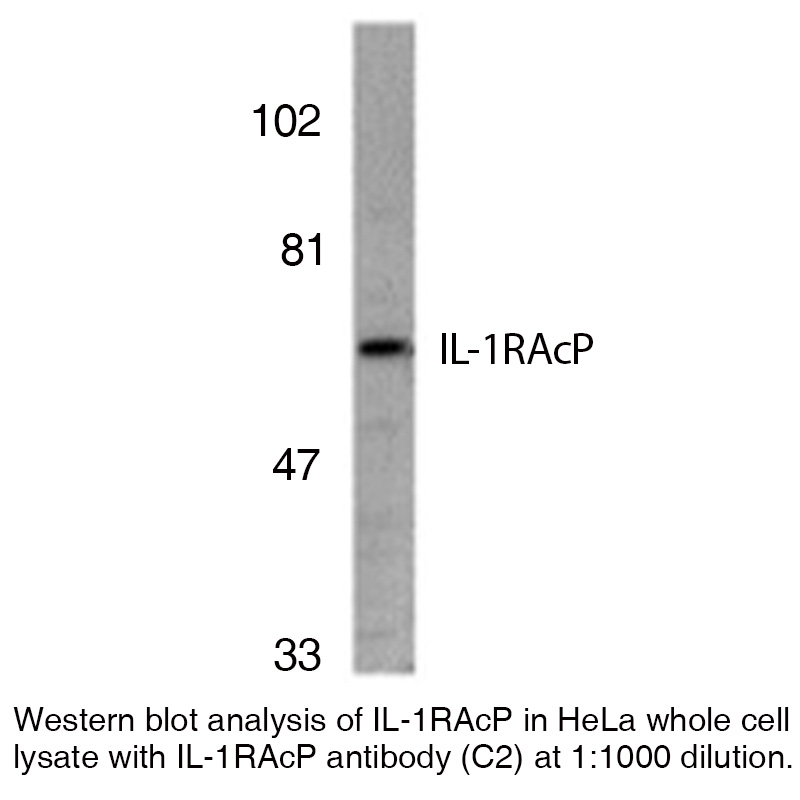Anti-Human IL-1RAcP (CT-2)
Data
- -
- -
Antibody DetailsProduct DetailsReactive Species Human Host Species Rabbit Immunogen PN:I-319 Product Concentration 0.5 mg/ml Formulation This polyclonal antibody is formulated in phosphate buffered saline (PBS) pH 7.4 containing 0.02% sodium azide as a preservative. Storage and Handling This polyclonal antibody is stable for at least one week when stored at 2-8°C. For long term storage, aliquot in working volumes without diluting and store at –20°C in a manual defrost freezer. Avoid Repeated Freeze Thaw Cycles. Country of Origin USA Shipping Next Day Ambient RRIDAB_2830627 Each investigator should determine their own optimal working dilution for specific applications. See directions on lot specific datasheets, as information may periodically change. DescriptionDescriptionSpecificity Rabbit Anti-Human IL-1 Receptor Accessory Protein (IL-1RAcP) recognizes an epitope near the C-terminus of Human IL-1RAcP. This polyclonal antibody was purified using affinity chromatography. Background IL-1R accessory protein (IL-1RAcP) is a transmembrane protein that interacts with IL-1R and is required for IL-1 signal transduction. IL-1RAcP is an indispensible molecule in the IL-1 receptor signal transduction complex, necessary to link events on the plasma membrane level to downstream signaling pathways, allowing IL-1-dependent activation of transcription factors and gene expression.1 IL-1R AcP represents a novel target for blocking IL-1 function in human disease.2 References & Citations1. Martin, MU. et al. (1997) J Biol Chem. 272: 7727 2. Labow, MA. et al. (1998) J Immunol. 161: 5614 Technical ProtocolsCertificate of Analysis |
Related Products
- -
- -



